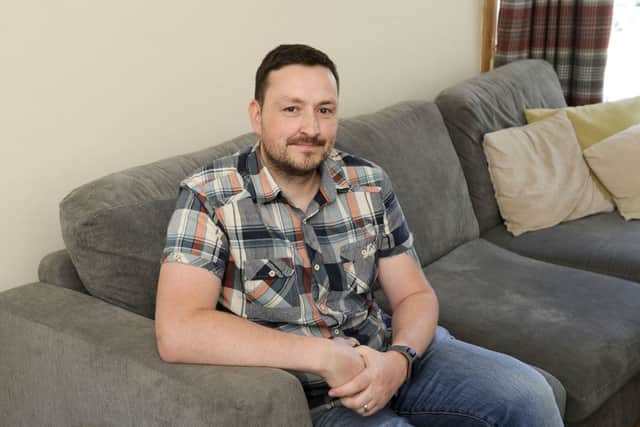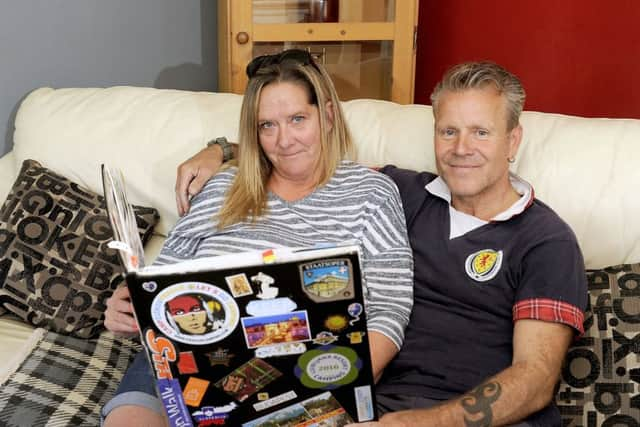Could you be a foster carer and make a real difference to a child's future?


But it is one more of us are being urged to consider so that more vulnerable youngsters get the chance to experience the benefits of a stable and secure environment as they grow up.
Foster Care Fortnight which launched nationally on Monday and is the UK’s biggest foster care awareness campaign, showcases the commitment, passion and dedication of foster carers and highlights the need for more.
Advertisement
Hide AdAdvertisement
Hide AdThis year more than 7000 new foster families are needed to support a range of youngsters, with the greatest need for older children, sibling groups, those with disabilities and unaccompanied asylum-seekers.


Falkirk Council is reaching out to potential recruits across the district asking them to think about taking the step that could make such a difference.
Shelley Lefort, a member of the fostering and adoption team, said: “Fostering is one of a number of care options that offer children and young people a home when they are unable to live with their birth family.
“Foster families offer children stability and security and can often be their first experience of positive family life. As a foster carer you would work with them and their families to enable a child or young person to return home, or help them move on to a permanent family.
Advertisement
Hide AdAdvertisement
Hide Ad“Fostering is complex and challenging, but also rewarding when you see a young person develop and reach their potential.”


The vast majority of children and young people who need foster care have become ‘looked after’ for care and protection reasons.
Some will have experienced neglect or mental, physical or emotional abuse within their own families because some parents are not able to prioritise their children’s needs over their own, cannot look after them because of their own substance misuse or have poor parenting skills.
Being a foster carer means:
lWorking with social workers and health and education experts for the benefit of the child or young person in your care;
Advertisement
Hide AdAdvertisement
Hide AdlSupporting the child or young person maintain links with their family;
lAttend meetings with and for the child or young person, advocating on their behalf and helping them express their wishes and feelings.
Types of fostering include short-term, where children can stay for several weeks or months and then either return home or move to a permanent placement; long-term, where a child needs a permanent family to stay with until they are 21 because they are normally unable to return to their birth family; short-break or respite fostering, which involves looking after a foster child for short periods, typically between one day and a few weeks; and parent and baby fostering placements that offer help to young mums who need support in the early months to learn how to look after their baby.
Foster carers in Falkirk are trained, assessed and approved by the local authority to look after children.
Advertisement
Hide AdAdvertisement
Hide AdFalkirk Council provides a very high level of support, a comprehensive training programme and competitive fees and allowances.
Shelley said: “As you’d expect, our assessment process is thorough and takes about four to six months.
“If you apply we’ll visit you at your home to meet you and your family. This initial interview helps us to get to know you better and assess if you are suitable to continue to the next phase.
“We’ll then invite you to attend our training and preparation groups which give you a chance to learn more about fostering and help you understand what it means to be a foster carer. Once the groups have been completed, you would be asked to complete a formal application form. This is the official start of the process for you to become a foster carer.
Advertisement
Hide AdAdvertisement
Hide Ad“We’ll then start our home study assessment and your social worker will discuss all relevant aspects of your application to foster. Our fostering panel will consider your application and make a recommendation about your application to foster based on your social worker’s assessment.”
Neil Bell (41) was an office manager before becoming a full-time foster carer two years ago. His in-laws were already foster carers. Inspired by what they were doing, when the opportunity arose he made inquiries.
Since 2015 he has provided respite care to a brother and sister aged two and four and welcomed a 13-year-old boy into his home as an emergency placement. Today, he cares for one young person on a permanent basis and another young child who is hearing impaired.
Neil said: “It has been challenging and I won’t say it’s an easy career, but being a foster carer brings great rewards when you see the difference you can make.
Advertisement
Hide AdAdvertisement
Hide Ad“It’s also great the council is there to support you along the way.”
In 2002 former soldier David Morton (54) and his wife, Sharron (50), were considering adoption when they found out more about foster care. They are currently caring for two teenage girls aged 17 and 14 who, thanks to their support, have turned their lives around significantly.
David said: “All the children and young people we have cared for over the years have been part of the family. To be able to be involved in their lives and help them plan their future is very rewarding and fulfilling.”
During Fostering Fortnight, May 8 to 21, information sessions are being held at Tesco stores across the district.